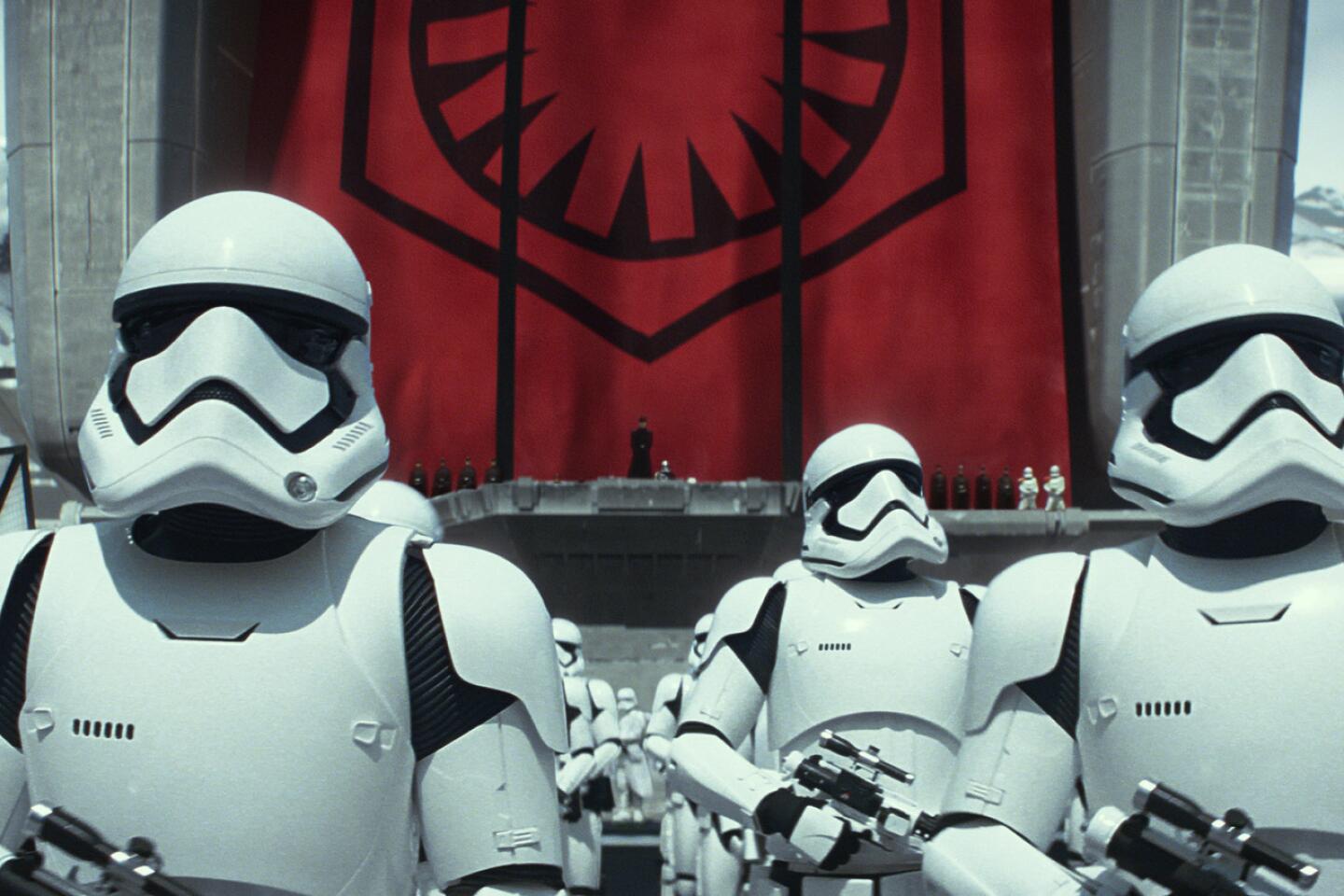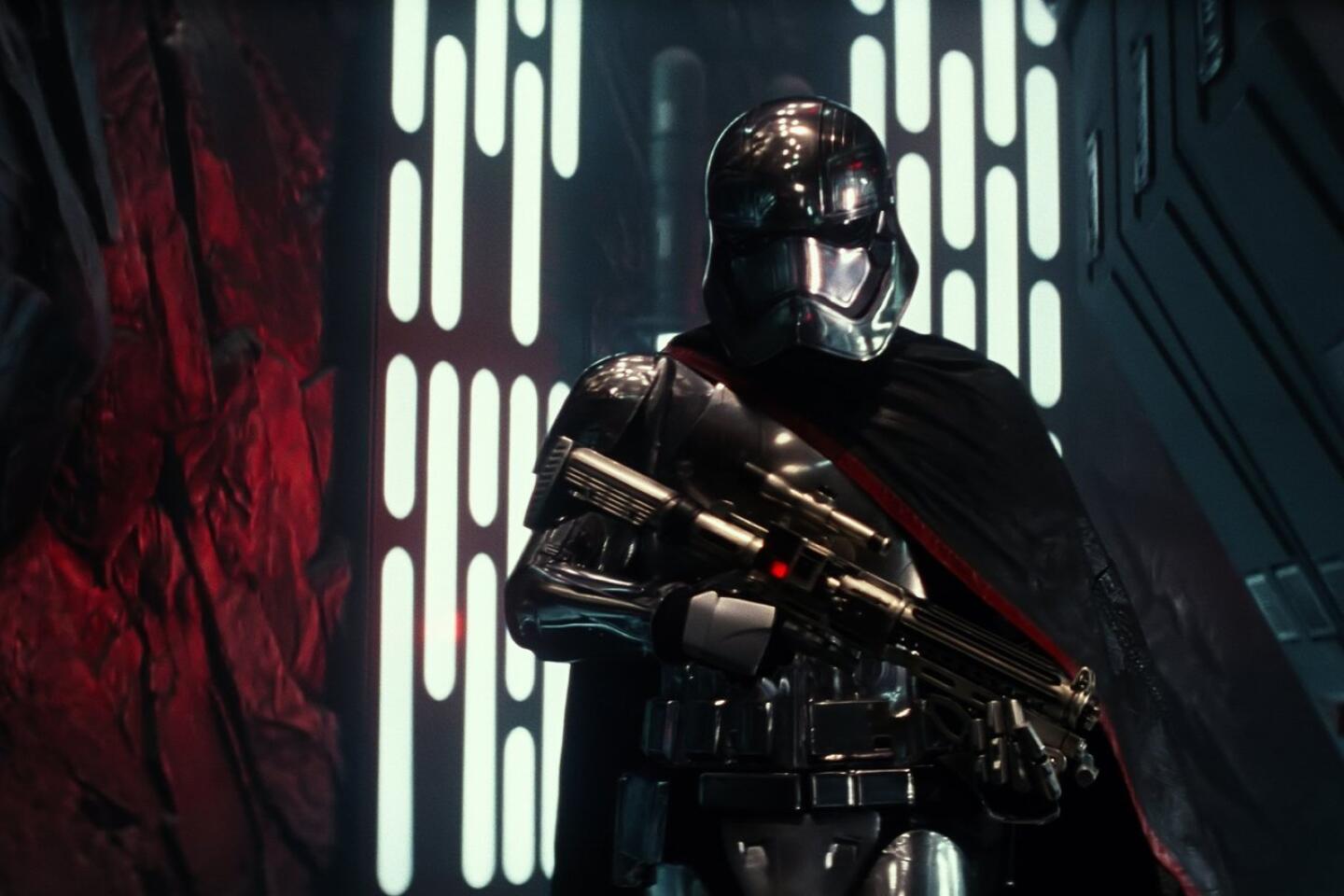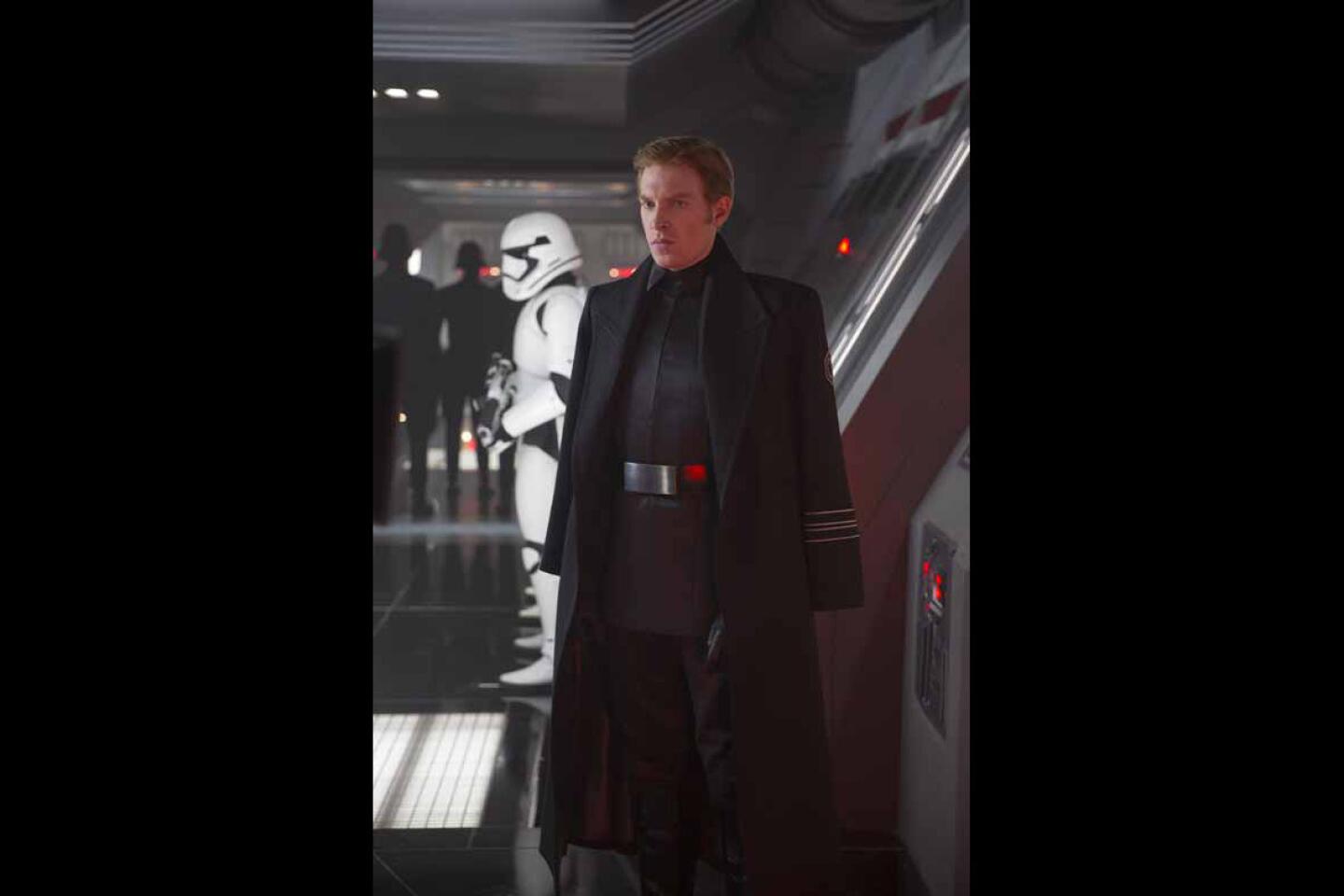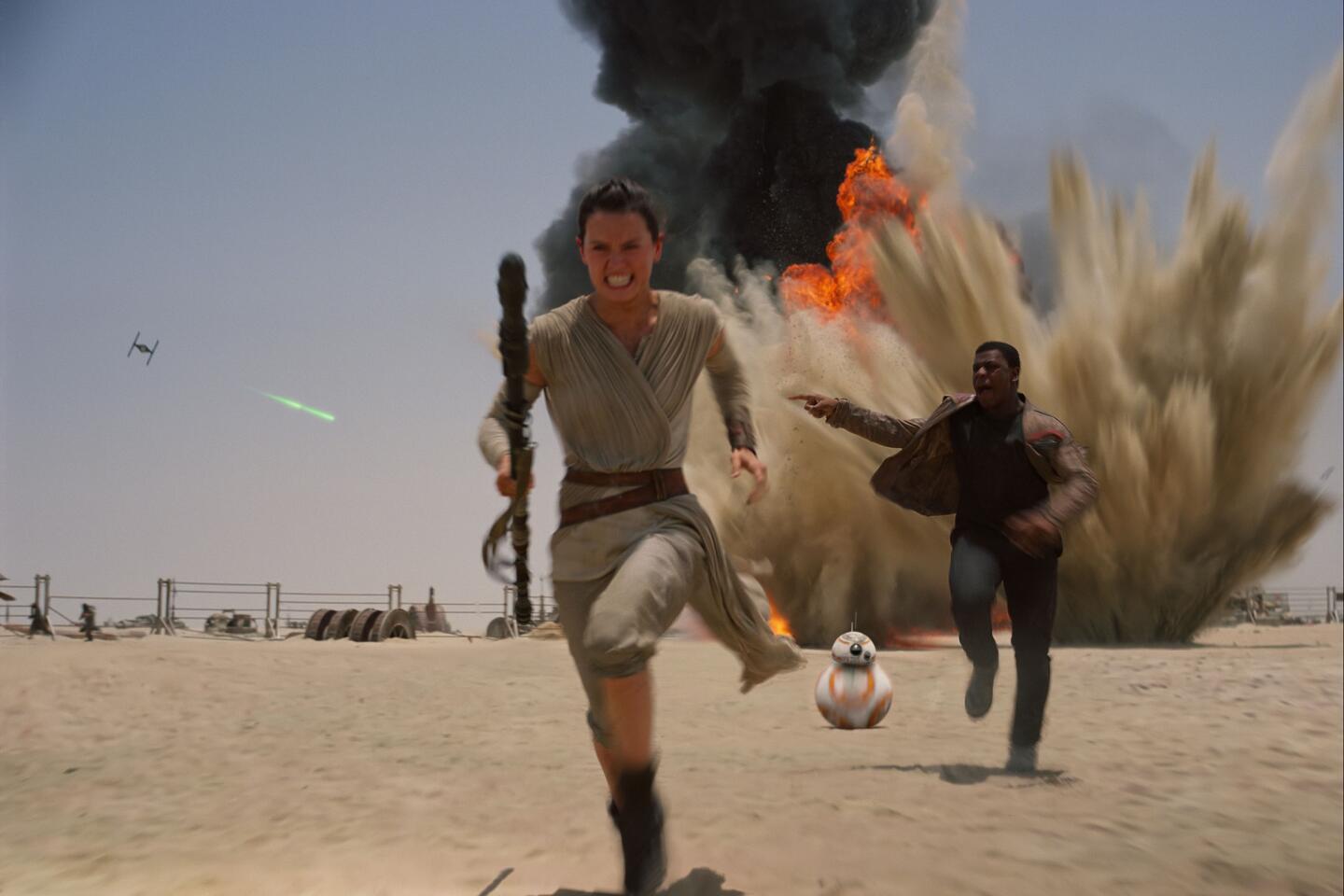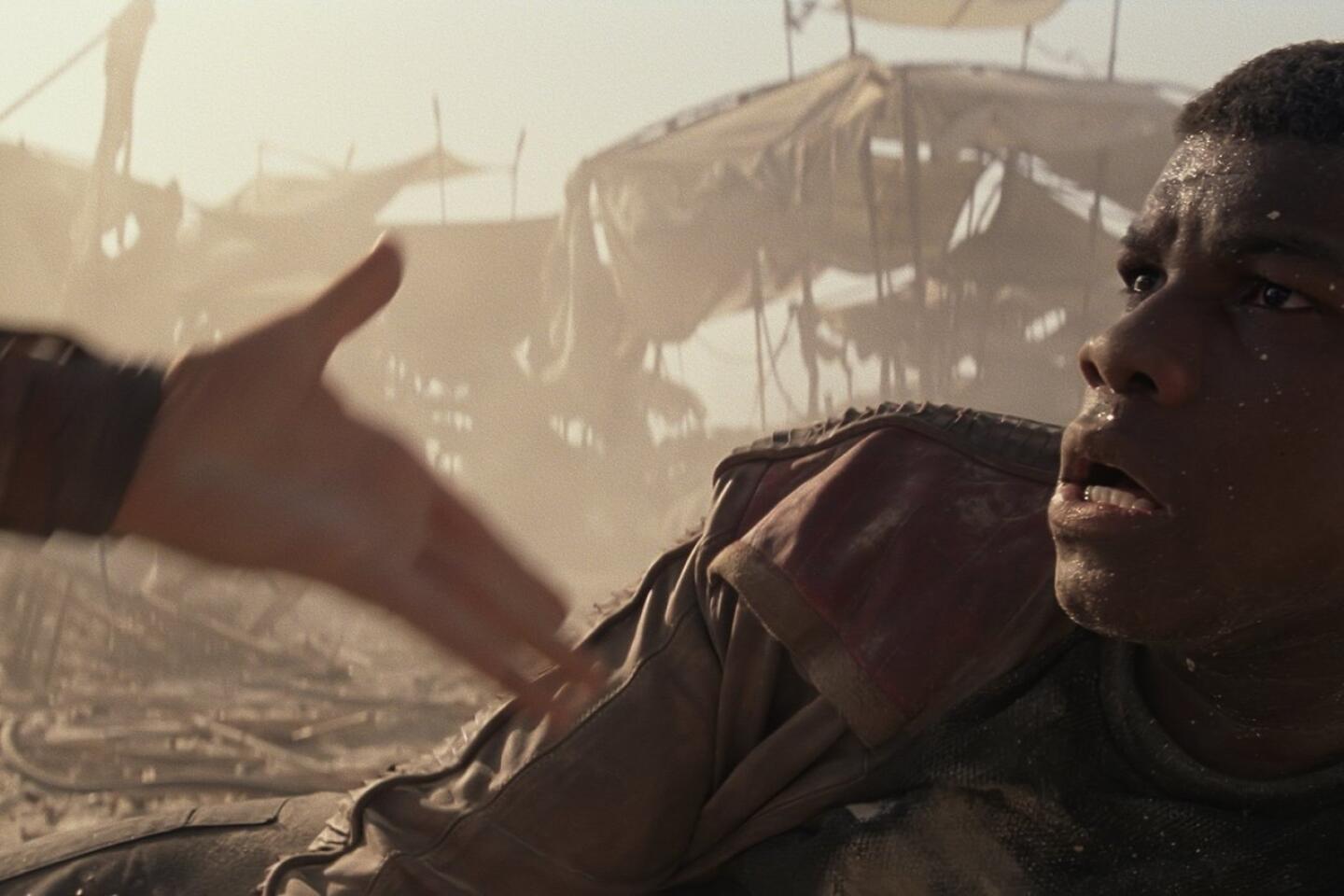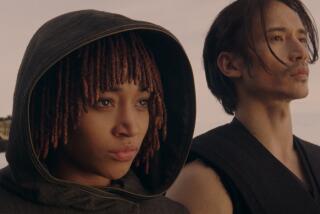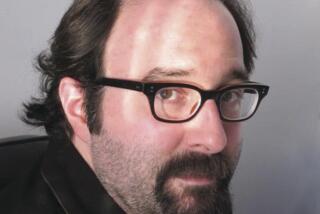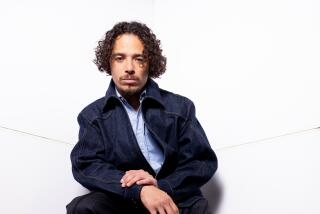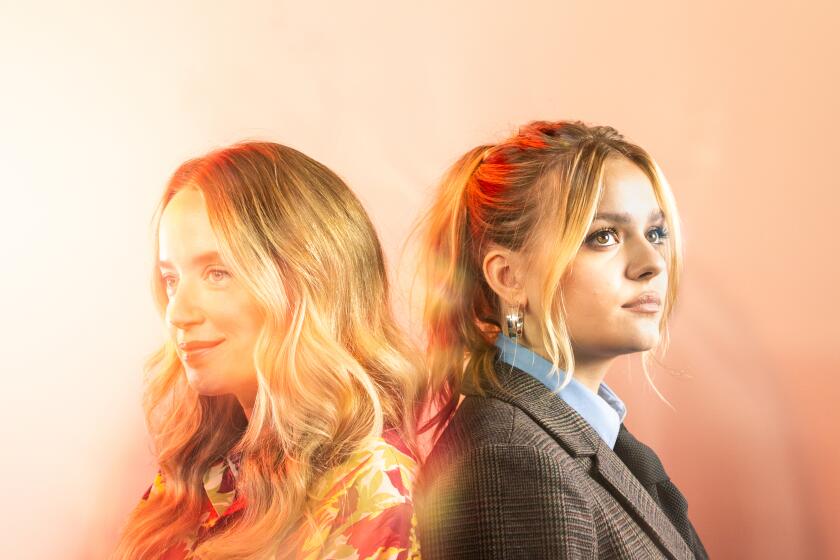‘Star Wars: The Force Awakens’ reflects our diverse, modern world
The first sign that “Star Wars: The Force Awakens” is different from the six “Star Wars” films that came before it arrives when Rey, the protagonist played by 23-year-old English actress Daisy Ridley, appears on-screen in a weather-beaten tunic, slouchy pants and a pair of rugged boots perfectly suited to a hardscrabble life of scavenging on her desert planet. She wears no high-heeled shoes, no copper-plated bikini, no princess robes. Rey is costumed as a woman might dress herself, for herself.
Rey’s sensible wardrobe is the first indicator of a change in the galaxy, and the movie keeps them coming like X-wings on the horizon. The second sign arrives when a Stormtrooper removes his helmet to reveal the face of a black man, English actor John Boyega, whose character, Finn, emerges as a conflicted combatant central to the action.
FULL COVERAGE: ‘Star Wars: The Force Awakens’
Part of the power of “Star Wars” movies has been how they have invited generations of audiences to imagine themselves as heroic characters in the fantastical, detailed world George Lucas conceived nearly 40 years ago. In 2015 — spoiler alert — it is not only white males who get to harness the power of the Force.
While director J.J. Abrams’ “Star Wars: The Force Awakens” has satisfied many fans of the series by returning to the exuberant spirit of Lucas’ early films, the latest movie also creates clever, funny, courageous new characters who reflect our diverse, modern world.
“Star Wars: The Force Awakens” follows on the heels of some of this year’s biggest box office hits, from the final movie in the female-led “Hunger Games” franchise to the seventh film in the ethnically diverse “Fast and Furious” series, which affirmed that audiences show up when then they see characters on-screen who look something like them.
With a $200-million production budget and saturation marketing by distributor Disney, “Star Wars: The Force Awakens” is, financially and culturally, the largest movie ever to reflect such an inclusive approach to casting.
The breadth in casting extends beyond the leads to supporting roles, including gifted rebel pilot Poe Dameron, played by Guatemala-born actor Oscar Isaac; Maz Kanata, a computer-generated, thousand-year-old female pirate with Yoda-like wisdom, played by Kenyan Oscar winner Lupita Nyong’o; and fearsome Stormtrooper commander Capt. Phasma, played by 6-foot-3-inch “Game of Thrones” actress Gwendoline Christie.
Women and people of color are well represented in background roles too — as pilots, medics and politicians who flash on-screen for glimpses but together paint a portrait of a world where those kinds of jobs are accessible to diverse groups of people.
Typical gender roles are inverted in this “Star Wars” — in the one moment in the film when a character shakes silky tresses out of a helmet, it is long-haired “Girls” star Adam Driver as the mysteriously angry villain Kylo Ren. As someone who has long wondered where women in space go to get great blowdries, I’m relieved to see a science fiction world where men finally enjoy such a service too.
Some of the movie’s most satisfying scenes center on the growing friendship between Harrison Ford’s Han Solo and Ridley’s Rey, who share a knack for the mechanical. When an impressed Han offers Rey a job, the frisson between older man and younger woman comes from mutual respect, not sexual tension — a theme that also pops up in Nancy Meyers’ “The Intern” between characters played by Robert De Niro and Anne Hathaway. In a world where fathers are watching with pride as their daughters take on new roles, the exchange feels especially current.
The film’s original feminist icon has evolved too. Carrie Fisher’s Princess Leia is now General Leia, who brings a warmth and steadfastness to her command, and she shares a brief but meaningful scene with Rey.
For a generation of women and girls, Princess Leia was groundbreaking in her power. That she is often best remembered for the slave bikini scene in “Return of the Jedi” is unfortunate, as it reduces a character who was ahead of her time to a poster on a 14-year-old’s wall. Nevertheless, Leia, for all of her pioneering action scenes, never got to wield a lightsaber, nor did she have access to the power of the Force the way her brother, Luke Skywalker, did.
It also might have helped if Leia had had some girlfriends. Unlike the first three “Star Wars” movies, “The Force Awakens” passes the Bechdel test, a useful if imperfect indicator (named after cartoonist Alison Bechdel) of the active presence of women in a work of fiction. A movie passes if at least two women talk to each other about something other than a man. Two of the “Star Wars” prequels pass the test, for exchanges Natalie Portman’s politician Padmé Amidala has with some of her handmaidens. The new film passes for the brief scene with Rey and Leia as well as a long, mostly expository scene between Rey and Maz Kanata. (Though that scene with Maz is open to interpretation — it includes a mention of Luke Skywalker but is not about Luke Skywalker. Strict Bechdelists may disagree, but for me it passes, because the female characters are talking about the Force.)
Boyega’s portrayal of Finn, meanwhile, is a gigantic leap for a nonwhite character in this universe. Billie Dee Williams’ Lando Calrissian, who appeared in “The Empire Strikes Back” and “Return of the Jedi,” was a smooth-talking smuggler who referred to himself as a “galactic entrepreneur.” Though Williams’ undeniable screen charisma has made Lando a fan favorite, the supporting character veers into jive stereotype territory, and no one would ever confuse Lando with having the strength of a Jedi.
Finn, on the other hand, is a reluctant hero who undergoes a classic journey in the manner explained by Joseph Campbell in his influential 1949 work “The Hero With a Thousand Faces.” Campbell’s book inspired Lucas as he wrote Luke and Leia’s story in the original “Star Wars” as it has countless directors of epic films, including the Wachowski siblings and James Cameron. When Finn grasps a lightsaber, it’s a cue to anyone in the audience who feels like an outsider in the culture — the power of adventure lives within you too.
MORE:
‘Star Wars: The Force Awakens’ now holds record for largest opening weekend ever
Anthony Daniels of ‘Star Wars: The Force Awakens’ on C-3PO: ‘I need him’
PHOTOS: Hollywood premiere of ‘Star Wars: The Force Awakens’
REVIEW: ‘Star Wars: The Force Awakens’: Was it worth the wait?
How a faceless force of Stormtroopers and the 501st Legion do good
More to Read
Only good movies
Get the Indie Focus newsletter, Mark Olsen's weekly guide to the world of cinema.
You may occasionally receive promotional content from the Los Angeles Times.
